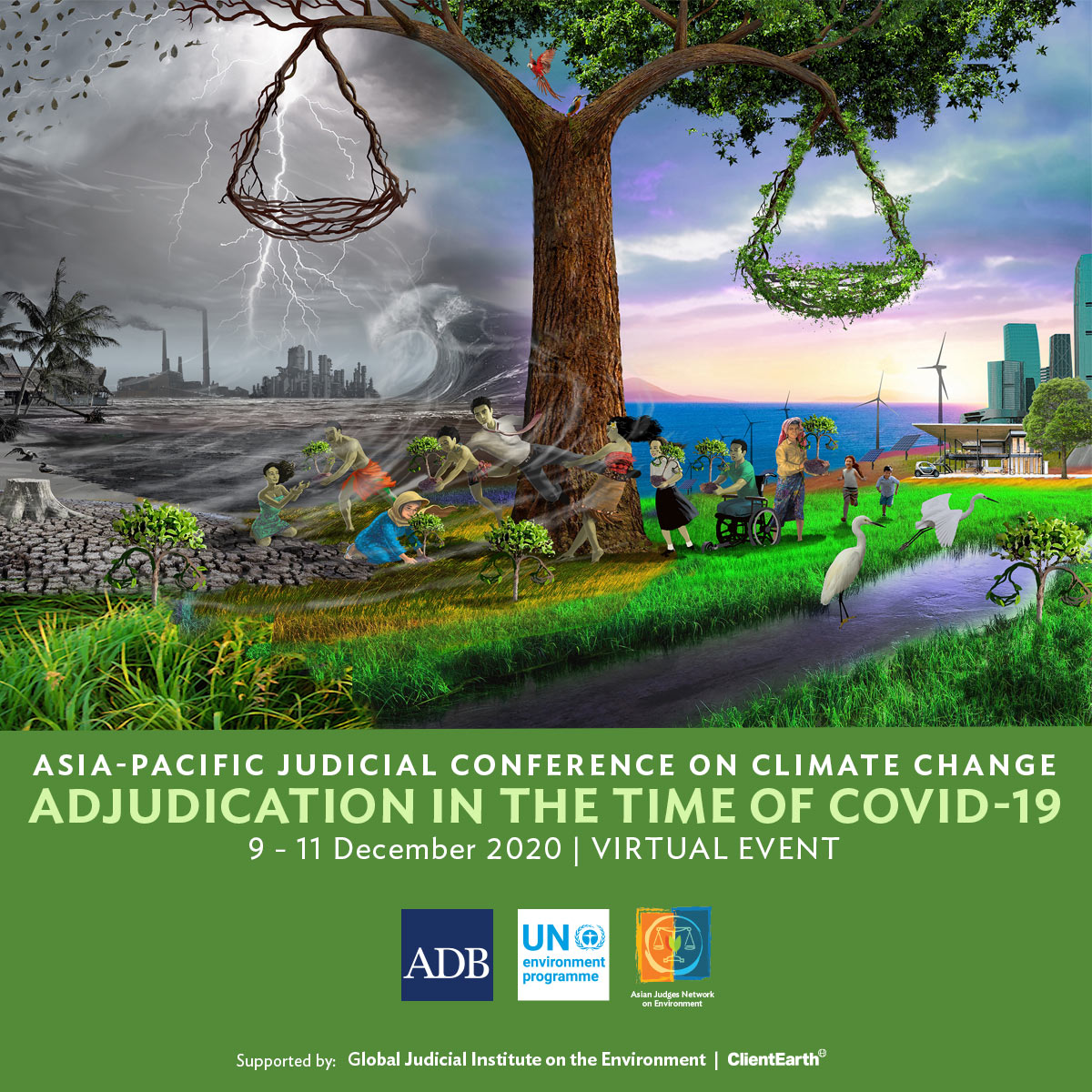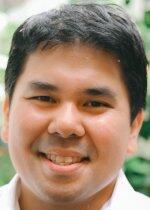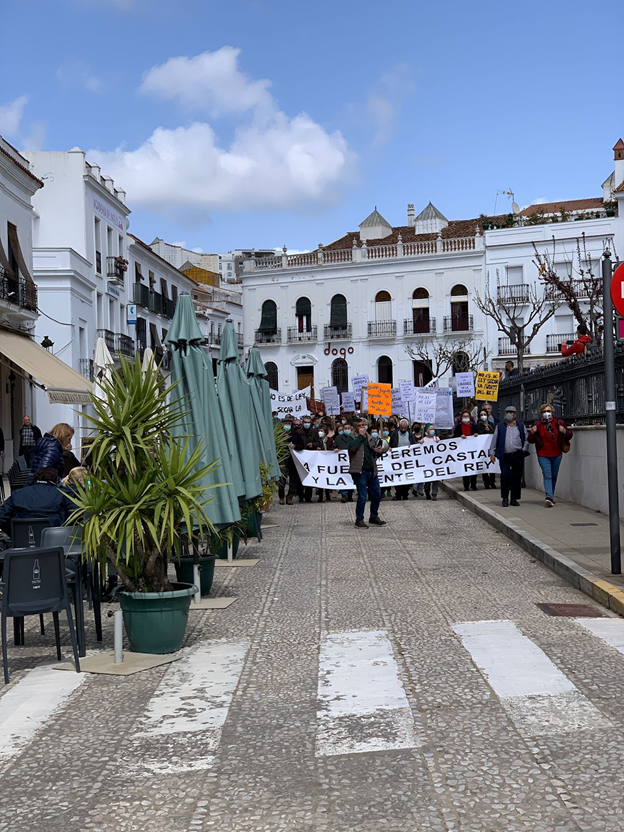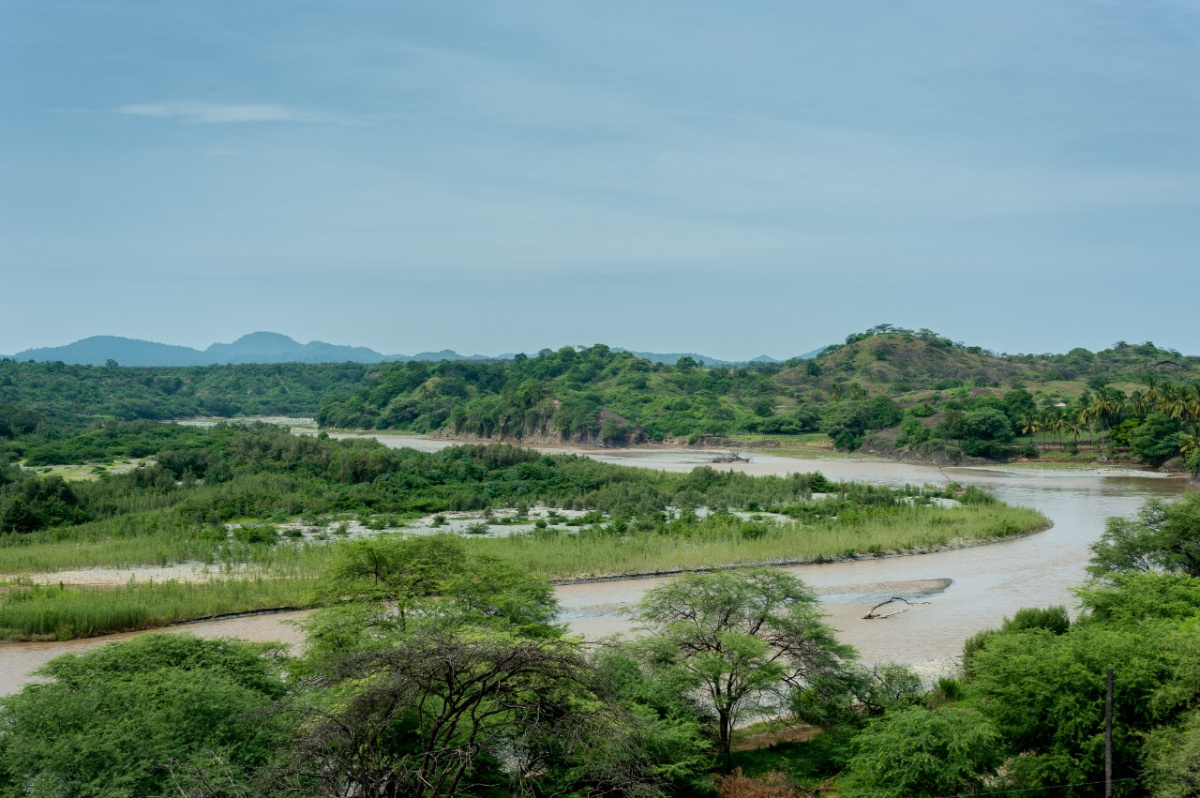Judges Keep Up the Fight for the Health of People and the Planet
By Irum Ahsan and Gregorio Rafael P. Bueta - The Asian Development Bank’s (ADB) Law and Policy Reform Program and the United Nations Environment Programme (UNEP) co-organized the Asia Pacific Judicial Conference on Climate Change: Adjudication in the Time of COVID-19, which took place virtually from 9 to 11 December 2020. The conference was a continuation of the annual gathering of judges under the banner of the Asian Judges Network on Environment, organized over the past decade. The primary focus of the conference was climate change law and the continuing need for urgent action to address the climate crisis, especially where there are proven linkages between climate change and the ongoing global health pandemic. The conference also explored climate litigation trends around the world, and in particular in the Asia Pacific, requiring judges to be able to adjudicate in bold, innovative, and future-looking ways.

Photo: Asian Development Bank
They say the wheels of justice never stop and never sleep. Put differently, they must keep on turning most especially when rights and lives are at stake; and what time will be more suitable for this famous saying, than the present crisis situation. We saw how countries entered into lockdowns, schools, offices, and commercial establishments shut down, and governance and regulation were remotely done. This crisis also inpacted access to justice since many courthouses closed their doors. Judges, prosecutors, and court staff all stayed home to avoid the risks of COVID-19. Governments, including the courts, grappled with how to respond to the pandemic and how to ensure the delivery of essential government services. Judges were concerned by how to keep the wheels of justice turning, how to ensure that courts were accessible for the most vulnerable, and how to protect human rights in these unprecedented times.
Keeping Up The Fight: The Asia Pacific Judicial Conference on Climate Change: Adjudication in the Time of COVID-19
With the above backdrop, and keeping in mind the challenges which the COVID-19 pandemic continues to bring and what the post-COVID world might be like, the Asian Development Bank’s (ADB) Law and Policy Reform Program and the United Nations Environment Programme (UNEP) co-organized the Asia Pacific Judicial Conference on Climate Change: Adjudication in the Time of COVID-19, which took place virtually from 9 to 11 December 2020. It was a continuation of the annual gathering of judges under the banner of the Asian Judges Network on Environment, organized over the past decade. Most of the judicial activities in the area of environment and climate change are supported by the Global Judicial Institute on the Environment (GJIE). This year, the GJIE helped by organizing the needs-based conference to address emerging concerns of judges and the legal community. The conference brought together over ninety judges, judicial officers and other specialists working in the field of the environment and climate. Participants came from South and Southeast Asia, Northeast Asia and the Pacific, as well as from Africa, North American, and Europe.
The primary focus of the conference was on climate change law and the continuing need for urgent action to address the climate crisis, especially where there are proven linkages between climate change and pandemics. The conference also explored climate litigation trends around the world, and in particular in Asia-Pacific, requiring judges to be able to adjudicate in bold, innovative, and future-looking ways. This year, the conference also explored how judges can best respond to people and maximize access to justice during the global health pandemic. Judges from around the world shared their experiences using digital tools and technology, which was often more challenging in developing countries. All pillars of the justice system have needed to adapt fast to the changing times, to the “new normal”.
The judges and experts also broadly examined how judges can play an important role in shifting and influencing pandemic-recovery policies, while hearing climate related cases that involve biodiversity issues in particular. For the foreseeable future, judges will need to ensure that people, especially vulnerable groups, have access to courts and justice, even remotely, despite the ongoing challenges associated with COVID-19.
The above challenges were discussed and addressed through multiple sessions, including a pre-conference Webinar, an inaugural session, three Technical Sessions, and a participatory Breakout Session and finally a closing and way-forward session.
The pre-conference webinar introduced participants to the role of judges as emergency disaster managers. Senior judges and experts from around the world discussed how the judiciary can effectively address climate litigation in a time of COVID-19. The speakers recognized that the judiciary can make meaningful contributions towards addressing the global climate crisis by ensuring equal access to justice, upholding the environmental rule of law, and making reasoned and evidence-based decisions.
The inaugural session started with the memorable keynote address delivered by Ms. Mary Robinson, former President of Ireland, focusing on issues of injustice arising in both the areas of COVID-19 and climate litigation. She emphasized that climate change is overwhelming us. She called on courts in Asia and the Pacific to recognize the layers of injustice that can emerge in such cases. She further highlighted both negative and positive impacts of COVID-19, the most important of which was reminding the world how the pandemic has highlighted “empathy” and “compassion”. This session also included the launch of the comprehensive four-part monograph series Climate Change: Coming Soon to a Court Near You, published by ADB’s Law and Policy Reform Program. This was followed by a special Asia-Pacific launch of UNEP’s 2020 Report on the Global Status of Climate Change Litigation.
The technical sessions had excellent presentations on the following topics:
- The scientific context of zoonosis, and discussion of how pandemics can be averted through ecosystem resilience and promoting environmental rights and justice, in relation to protecting both the health of people and the planet;
- How judges, legal practitioners and court administrators must continue to cope with the challenges presented by the COVID-19 pandemic; and
- The importance of recovering from COVID-19 in a resilient, responsible, and sustainable way.
The participants also had the opportunity to interact during the breakout sessions to look at issues such as impediments to environment and climate justice; digital tools for adjudication; strengthening judicial and academic networks; innovative approaches to environmental law enforcement; and new principles on environmental adjudication. The Breakout session resulted in very valuable recommendations for future support required to be provided by the international development institutions.
A Continuing Commitment to Environment and Climate Justice
Despite the many challenges judiciaries face during this pandemic, the conference saw a renewed commitment to keeping up the fight for environment and climate justice. The Conference Statement emphasized the role of judges as guardians of these rights as they engage in environmental and climate adjudication. ADB, UNEP, and their partners assured judges of their continuing support in the years to come, building on the momentum created by more than a decade of cooperation and collaboration. It was noted that climate litigation will continue to be an important aspect of judicial work in Asia and the Pacific and globally for the immediate future. This will require courts and legal practitioners to adjust, cope, and adapt to the new normal brought about by the pandemic and most importantly prepare the world for a reset that is mindful of the issues faced in the past.
Many argue, and most agree, that the COVID-19 global health pandemic was caused by humanity’s abuse and misuse of the planet, its creatures and its resources. It’s high time we learned our lesson lest we experience a crisis such as this again, and again, and again in our lifetimes. The global community needs to address issues such as climate change with the same speed and ferocity to avert dire consequences worse than the pandemic. The vaccine rollout globally is not the only glimmer of hope on the horizon. Judges and courts around the world stand ready to continue the fight for the health of people and the planet, and to do its part in ensuring we recover from the pandemic towards a healthier, carbon-free and more sustainable world. The fight has just begun.
About the Authors
 Photo: Irum Ahsan
Photo: Irum Ahsan
WCEL Member Irum Ahsan completed her legal education from the London School of Economics and Political Science, UK. Prior to joining the Asian Development Bank (ADB), Irum practiced on contentious and non-contentious legal matters in Pakistan. In addition, she taught law at various prestigious institutions. At ADB, Irum provided legal advice on multisectoral development projects in Asia and Pacific and negotiated hundreds of International Finance Agreements with various governments.
Currently, Irum is the Advisor of the Office of the Compliance Review Panel at ADB. She previously led ADB’s Law and Policy Reform Program (ADB’s LPR work is based on the premise that a functioning legal system – anchored by the Rule of Law is an essential component of sustainable development) with her projects focused on environmental and climate change adjudication and enforcement, sustainable development issues, gender equality laws and access to justice for women, corporate governance, energy laws, and regional cooperation.
Irum’s work includes establishment of the Asian Judges Network on Environment, 6+ green courts in Asia and 100+ Gender Based Violence Case Court in Pakistan, first such courts in Asia. Irum has been a judicial educator and together with her team, trained around 1000+ judges on environment and climate change laws and more than 500 judges and prosecutors in Afghanistan and Pakistan on violence against women related laws.
Irum has also published her work in various journals and presented at several platforms. She is a member of ADB’s Governance, Gender, Environment, and climate change Thematic Groups. Irum is an active advocate for climate rights and gender consciousness and passionately steers the gender and climate discussions in ADB and at various international forums.
Her work lead to winning the Lexis Nexis 2020 Global Inspiration Award for contributions to SDGs; 2018 Financial Times Most Innovative In-House Legal Team Award and Innovation in Rule of Law and Access to Justice Award; ADB’s 2019 Governance Award for Outstanding Knowledge Sharing and Collaborative Initiatives; and 2017 ADB’s Vice President Award for Exceptional Contributions to the Law and Policy Reform Work.
 Photo: Gregorio Rafael P. Bueta
Photo: Gregorio Rafael P. Bueta
WCEL Member Gregorio (Grip) Rafael P. Bueta is currently an expert Legal and Policy Consultant with the ADB’s Law and Policy Reform Program. He has worked with the public and private sector, and with various international development organizations. He has extensively worked with judiciaries and legal professionals across Asia on environment and climate change law, with particular in-country experience in Bangladesh, Bhutan, Cambodia, Fiji, India, Myanmar, Malaysia, Nepal, Pakistan, the Philippines, and Sri Lanka. Grip has also been involved in legal and regulatory reforms in South Asia in areas such as energy trade and corporate governance.
Grip advises on legal and regulatory matters to companies in construction, management services, and NGOs. He has guided clients on corporate registration, ESG and sustainability strategies, intellectual property concerns, compliance matters, litigation, special projects and commercial arbitration, among others. Complimentary to his focus on environment, climate, and sustainability law, Grip has also worked and/or published on topics and issues such as natural resource utilization, waste management (EPR and zero waste) local government solutions (PPPs and financing options, governance), energy policy reform (transitions), climate change and businesses, judicial reforms, e-commerce, rule of law and access to justice, promotion of human rights, and children’s rights, among many others.
He lectures on Natural Resources and Environmental Law, and International Environment and Climate Change Law, at the Ateneo de Manila University School of Law.
Grip has a Bachelor of Arts degree in Political Science from the Ateneo de Manila University, and earned his Juris Doctor Degree from the same institution, where he was the recipient of the St. Thomas More Most Distinguished Award for his graduating class.



